
Lech-Zürs am Arlberg: Alpine Elegance in Austria
Nestled in the Austrian Alps, Lech-Zürs am Arlberg is a picturesque village that offers a perfect blend of natural beauty and luxury. Known for its world-class ski resorts, this destination attracts winter sports enthusiasts from around the globe. The snow-covered slopes cater to all skill levels, making it an ideal spot for both beginners and seasoned skiers. Beyond skiing, the village offers stunning landscapes, charming chalets, and a warm, welcoming atmosphere. During the summer months, Lech-Zürs transforms into a haven for hikers and nature lovers. The lush green meadows and alpine trails provide breathtaking views and a chance to explore the serene beauty of the Austrian Alps. The village itself is rich in culture and tradition, with historic churches, local festivals, and cozy cafes that serve delicious Austrian cuisine. Lech-Zürs is also known for its commitment to sustainability. The region focuses on preserving its natural environment, ensuring that future generations can also enjoy its pristine beauty. Whether you are here for adventure or relaxation, Lech-Zürs am Arlberg offers a memorable experience that combines the best of nature and luxury.
Local tips in Lech-Zürs am Arlberg
- Book your ski passes and accommodations well in advance, especially during peak seasons.
- Explore the local cuisine by visiting traditional Austrian restaurants in the village.
- Take advantage of the free local bus service to easily navigate between Lech and Zürs.
- Visit the Lech Museum to learn more about the history and culture of the region.
- Don't miss the chance to hike the Green Ring trail during the summer for stunning alpine views.
Lech-Zürs am Arlberg: Alpine Elegance in Austria
Nestled in the Austrian Alps, Lech-Zürs am Arlberg is a picturesque village that offers a perfect blend of natural beauty and luxury. Known for its world-class ski resorts, this destination attracts winter sports enthusiasts from around the globe. The snow-covered slopes cater to all skill levels, making it an ideal spot for both beginners and seasoned skiers. Beyond skiing, the village offers stunning landscapes, charming chalets, and a warm, welcoming atmosphere. During the summer months, Lech-Zürs transforms into a haven for hikers and nature lovers. The lush green meadows and alpine trails provide breathtaking views and a chance to explore the serene beauty of the Austrian Alps. The village itself is rich in culture and tradition, with historic churches, local festivals, and cozy cafes that serve delicious Austrian cuisine. Lech-Zürs is also known for its commitment to sustainability. The region focuses on preserving its natural environment, ensuring that future generations can also enjoy its pristine beauty. Whether you are here for adventure or relaxation, Lech-Zürs am Arlberg offers a memorable experience that combines the best of nature and luxury.
When is the best time to go to Lech-Zürs am Arlberg?
Iconic landmarks you can’t miss
Rüfikopf Seilbahn Talstation
Discover breathtaking views and exhilarating ski experiences at the Rüfikopf Seilbahn in Lech, Austria, your gateway to Alpine adventures.
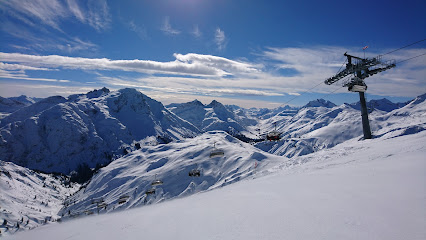
Trittkopfbahn, Talstation
Explore the breathtaking alpine beauty and thrilling adventure opportunities at Trittkopfbahn, your gateway to the Arlberg region in Lech, Austria.
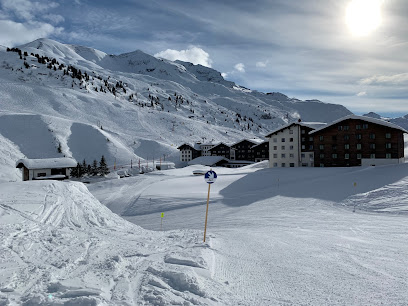
Ski Arlberg (St. Anton, St. Christoph, Stuben, Lech, Zürs, Warth, Schröcken)
Discover the enchanting Ski Arlberg, Austria's largest ski resort, where breathtaking slopes meet vibrant après-ski culture in a stunning alpine setting.
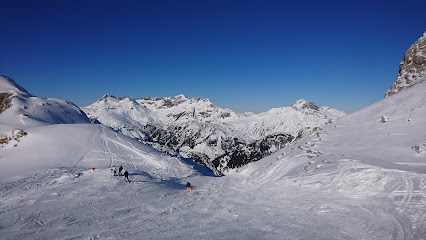
Bergbahn Lech–Oberlech
Experience breathtaking views and outdoor adventures at Bergbahn Lech–Oberlech, your gateway to the majestic Austrian Alps.
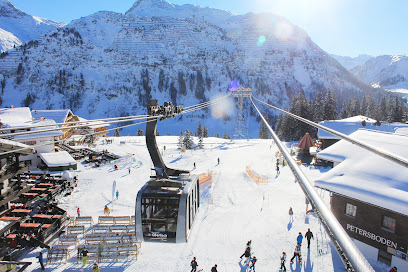
Lech Bergbahnen AG
Experience unparalleled skiing and breathtaking alpine beauty at Lech Bergbahnen AG, a top destination for winter sports enthusiasts in the Austrian Alps.
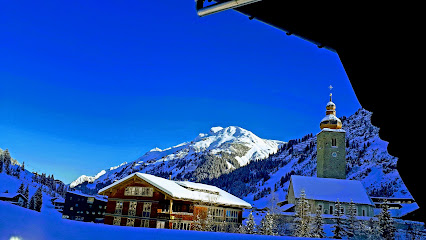
Seekopf Sesselbahn, Talstation
Experience breathtaking views and alpine adventures at the Seekopf Sesselbahn in Lech, your gateway to the stunning Austrian Alps.
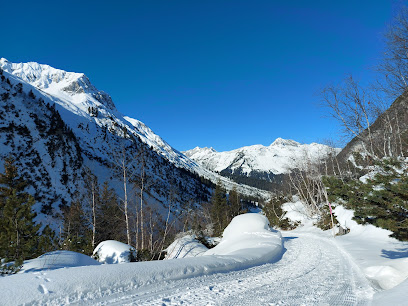
Skyspace Lech
Discover the enchanting Skyspace Lech, a stunning sculpture in the heart of the Austrian Alps, where art meets nature for a unique experience.
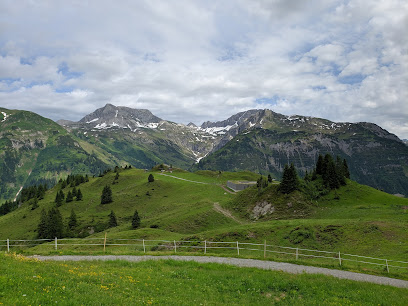
Hotel Arlberghaus
Discover luxury and adventure at Hotel Arlberghaus in Zurs, Austria, your gateway to the majestic Alps and unforgettable experiences.
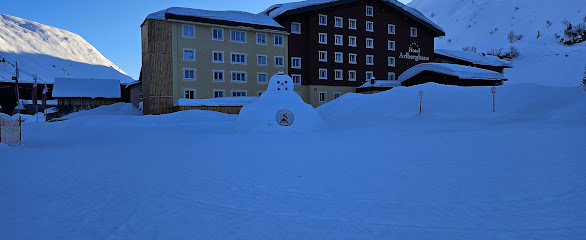
Hotel Albona Nova
Experience luxury and relaxation at Hotel Albona Nova, a premier destination in Lech, Austria, offering exquisite dining and wellness amidst stunning alpine landscapes.
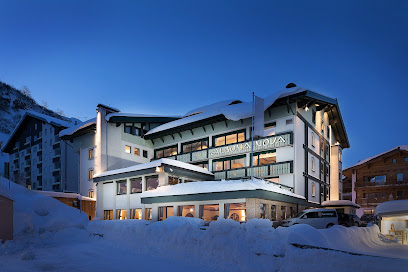
Stockibach Wasserfall
Discover the enchanting beauty of Stockibach Wasserfall in St Anton am Arlberg, a must-visit natural attraction for every nature lover and adventure seeker.
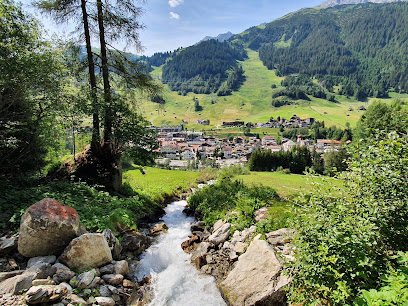
Restaurant & Hotel Hirlanda
Discover exquisite dining and luxurious accommodations at Restaurant & Hotel Hirlanda in Lech, Austria, where Alpine beauty meets culinary artistry.
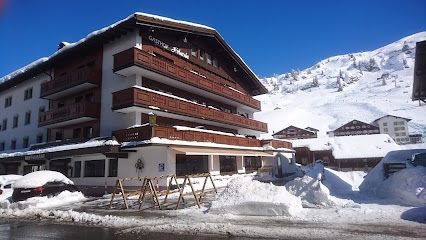
Zürsersee Sesselbahn, Talstation
Experience breathtaking views and thrilling adventures at Zürsersee Sesselbahn, the gateway to the stunning Austrian Alps.
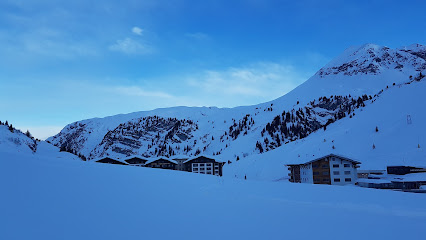
Zürser See
Experience the mesmerizing beauty of Zürser See, a pristine alpine lake nestled in the heart of the Austrian Alps, perfect for relaxation and adventure.
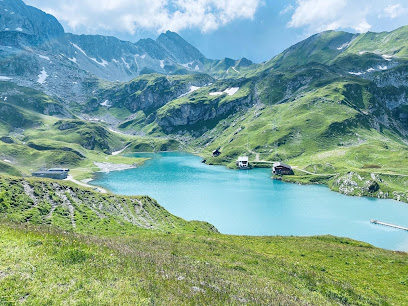
Alpe Rauz
Experience the breathtaking beauty of Alpe Rauz in Stuben, Austria – a paradise for outdoor enthusiasts and nature lovers alike.
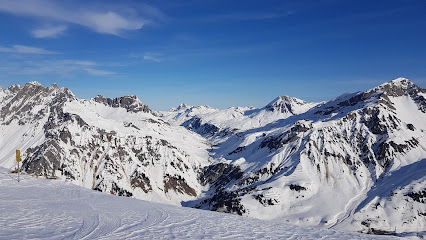
Lech Zürs Tourismus
Discover the breathtaking alpine beauty and outdoor adventures at Lech Zürs, your essential tourist information hub in the heart of Austria's Arlberg region.
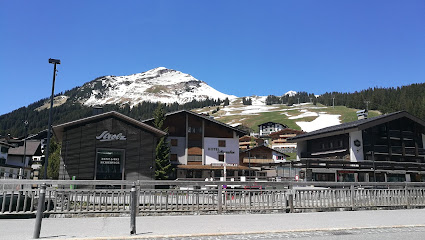
Unmissable attractions to see
Flexenbahn, Talstation
Experience breathtaking alpine views and thrilling adventures at Flexenbahn, the ultimate mountain cable car in Austria's Arlberg region.
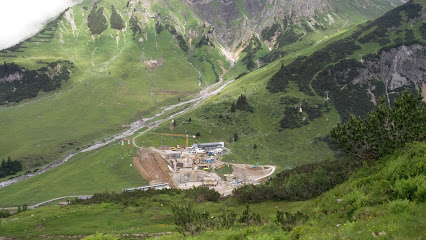
Ski Arlberg (St. Anton, St. Christoph, Stuben, Lech, Zürs, Warth, Schröcken)
Discover the enchanting Ski Arlberg, a premier Austrian ski resort featuring stunning landscapes, thrilling slopes, and cozy après-ski experiences.
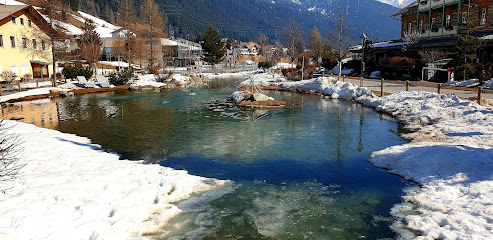
Rüfikopf Seilbahn 2 Bergstation
Discover unparalleled alpine beauty and thrilling adventures at the Rüfikopf Seilbahn in Lech, Austria – a must-visit for every nature lover.
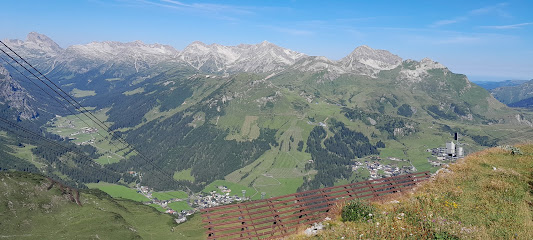
Stockibach Wasserfall
Discover the enchanting Stockibach Wasserfall – a breathtaking natural jewel in St Anton am Arlberg, perfect for nature lovers and adventurers alike.
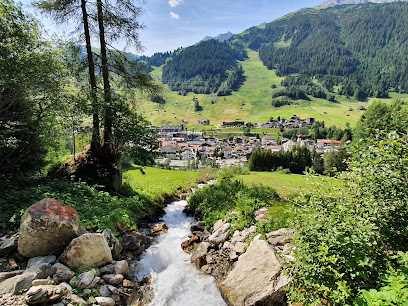
Wasserfall Zug
Explore Wasserfall Zug, a stunning hiking area in Lech, Austria, where breathtaking waterfalls and scenic trails await all nature lovers.
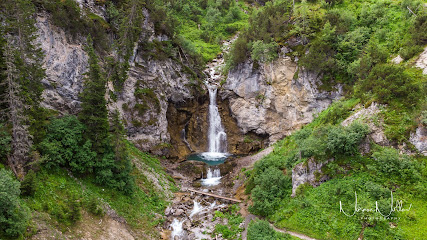
Alpe Rauz
Experience the breathtaking beauty of Alpe Rauz, an alpine gem in Stuben, Austria, perfect for outdoor adventurers and nature enthusiasts.
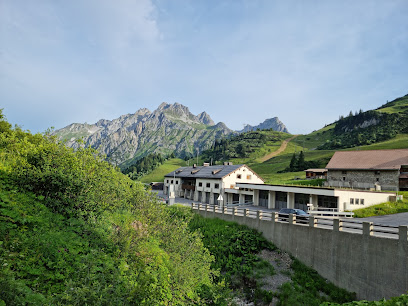
Maiensee
Explore Maiensee: A hiking paradise in St Anton am Arlberg, featuring breathtaking trails and stunning alpine vistas.
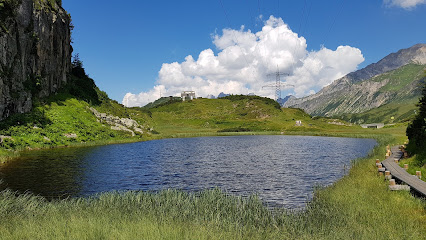
Museum Huber-Hus
Immerse yourself in the rich cultural heritage of Lech at Museum Huber-Hus, a charming museum showcasing local traditions and history.
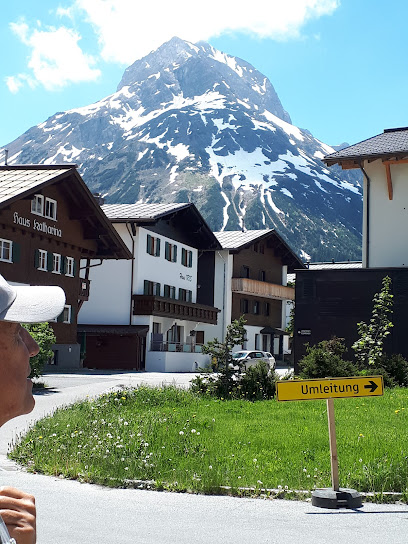
Wäldletobelschlucht - Oberer Wasserfall
Explore the stunning Wäldletobelschlucht - Oberer Wasserfall, a serene escape into nature's beauty in Klösterle, Austria.
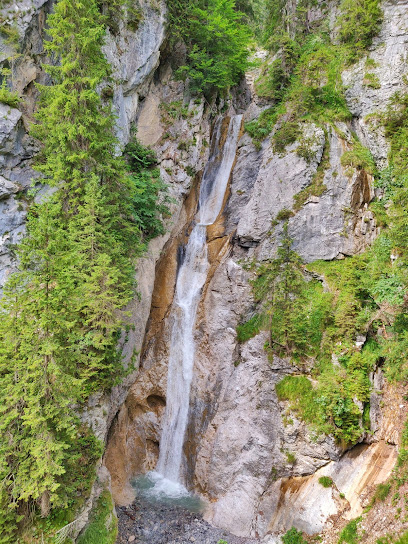
Museumsverein Klostertal
Explore the rich heritage of the Klostertal Valley at Museumsverein Klostertal, a must-visit museum in Dalaas, Austria.
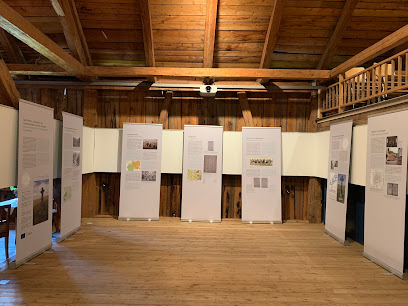
Gipslöcher Lech
Explore the stunning natural wonders of Gipslöcher Lech, where breathtaking views and serene hiking trails await every nature lover.
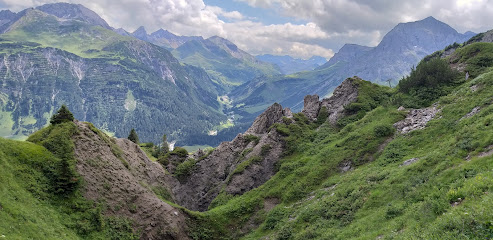
Gehrengrat
Explore Gehrengrat, an Alpine gem in Dalaas, featuring stunning views, hiking trails, and a taste of authentic Austrian culture.
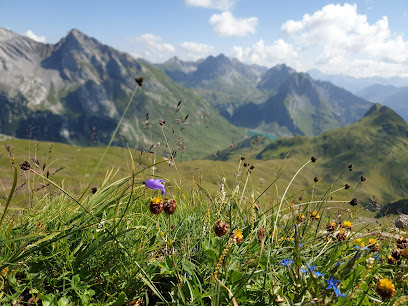
Hall Of Fame
Uncover the cultural narratives of Lech at the Hall of Fame, a local history museum showcasing the heritage of the Arlberg region.
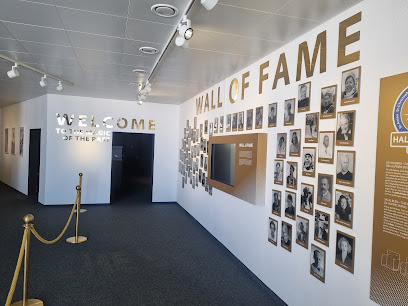
Rüfikopf Aussichtsplattform
Experience breathtaking views from the Rüfikopf Aussichtsplattform, a stunning alpine observation point in the heart of the Austrian Alps.
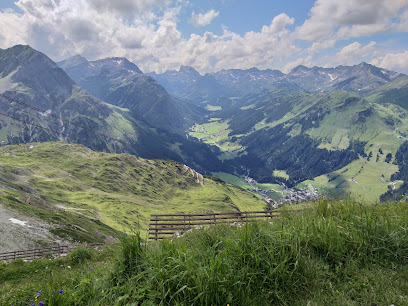
Osthangbahn Bergstation
Experience the stunning alpine views and thrilling outdoor adventures at Osthangbahn Bergstation in St. Anton am Arlberg.
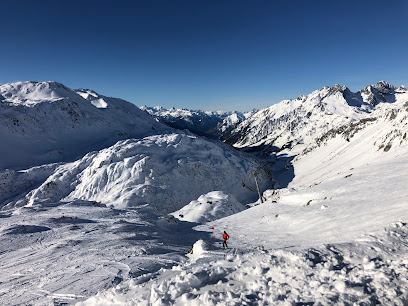
Essential places to dine
Rud-Alpe Gastronomie
Experience exquisite Alpine cuisine at Rud-Alpe Gastronomie amidst breathtaking mountain views in Lech.
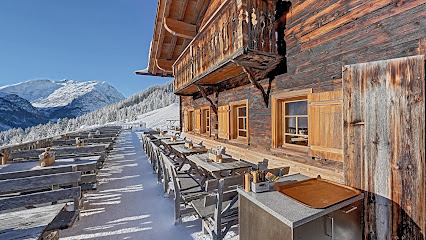
Trittalpe
Discover Trittalpe: A premier restaurant offering exquisite alpine cuisine and breathtaking mountain views in Zürs.
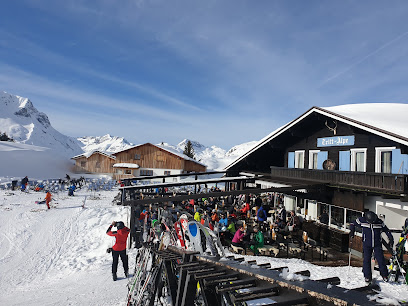
Bergrestaurant Seekopf
Experience authentic Austrian cuisine with breathtaking alpine views at Bergrestaurant Seekopf in Zürs.
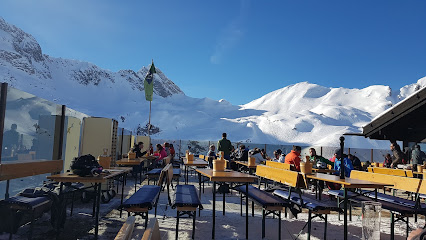
Hus Nr. 8
Experience the essence of Austrian luxury dining at Hus Nr. 8 in Lech - where exquisite cuisine meets charming alpine ambiance.
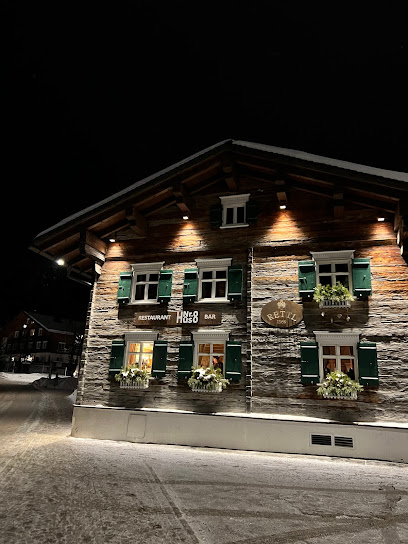
Trittkopf BBQ Station
Discover culinary delights at Trittkopf BBQ Station in Lech - where expertly grilled meats meet stunning alpine views.
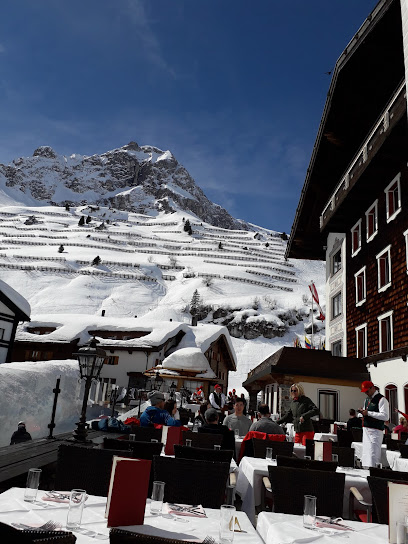
Restaurant Flexenhäusl - die außergewöhnliche Hütte
Discover authentic Austrian cuisine at Flexenhäusl, where delicious fondue meets stunning alpine views in Zürs.
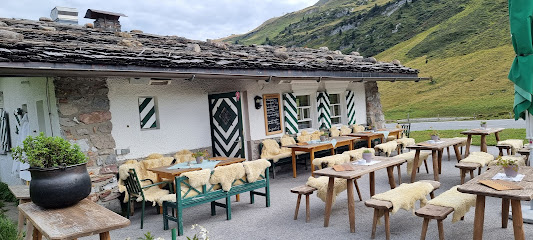
Krone-Stuben
Experience exquisite Austrian cuisine at Krone-Stuben in Lech – where tradition meets modern culinary artistry amidst breathtaking alpine scenery.
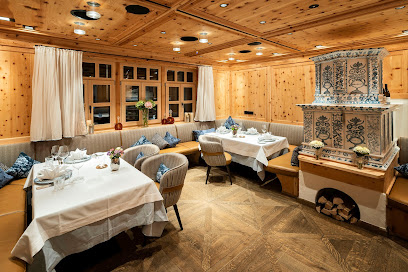
Lecher Stube
Experience authentic Austrian cuisine at Lecher Stube in scenic Lech - where tradition meets flavor in a cozy alpine setting.
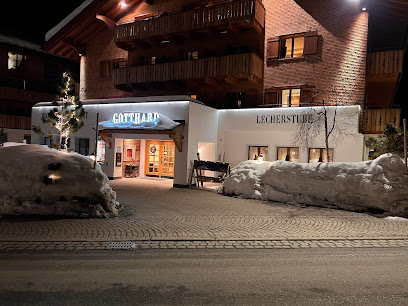
Hotel Edelweiss
Experience unparalleled luxury and breathtaking alpine views at Hotel Edelweiss in Lech - your perfect getaway destination.
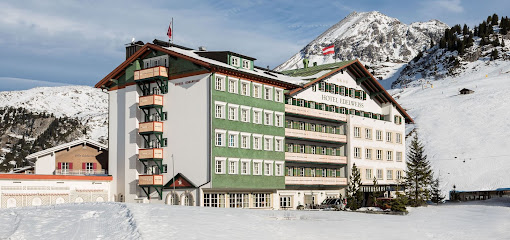
Fux Restaurant
Experience exceptional Asian fusion cuisine amidst the stunning backdrop of Lech's majestic Alps at Fux Restaurant.
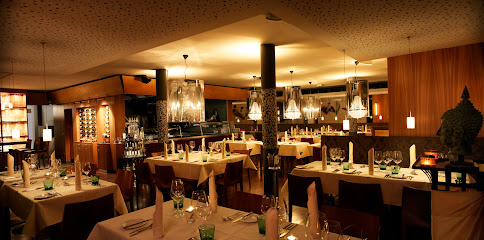
Restaurant & Hotel Hirlanda
Discover alpine luxury at Restaurant & Hotel Hirlanda – where comfort meets exquisite dining in Lech's breathtaking landscape.
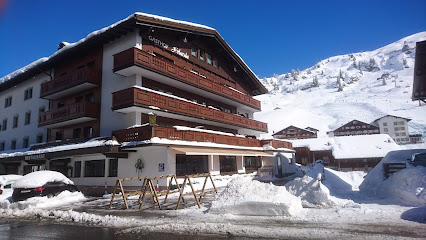
Schröfli Alm
Discover Schröfli Alm: A cozy alpine restaurant offering delicious local cuisine amidst stunning mountain views in Lech.
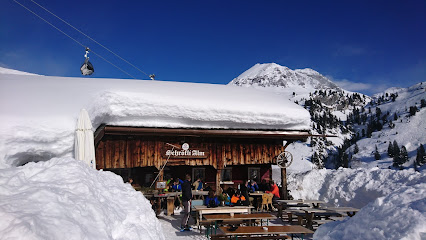
Restaurant Tannbergerhof
Experience authentic Austrian cuisine at Restaurant Tannbergerhof in Lech – where local flavors meet alpine hospitality.
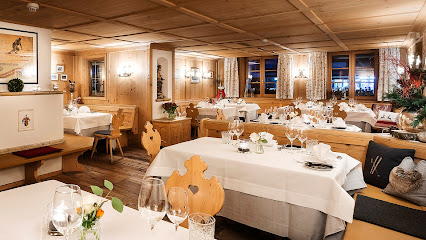
Tian
Experience the ultimate fondue delight at Tian in Zürs – where alpine charm meets culinary excellence.
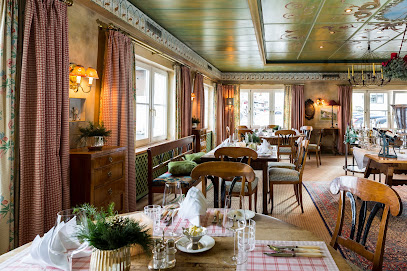
Das Theo
Experience exquisite dining at Das Theo in Lech - where traditional flavors meet modern culinary artistry amidst breathtaking alpine scenery.
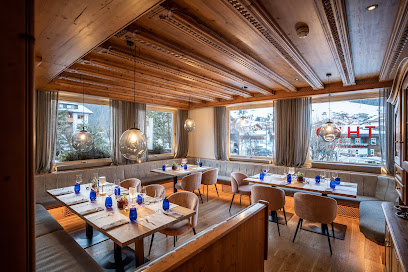
Markets, malls and hidden boutiques
SPAR
Discover the convenience of SPAR in St. Anton am Arlberg, your one-stop destination for local flavors, fresh produce, and unique souvenirs.
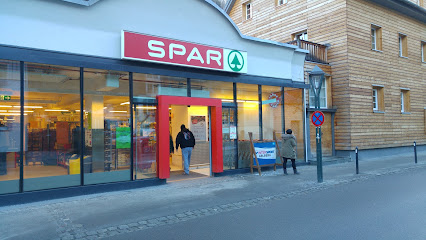
Lechtaler Naturkäserei Sojer
Discover the authentic taste of the Austrian Alps at Lechtaler Naturkäserei Sojer, your go-to cheese shop and ice cream haven in Steeg.
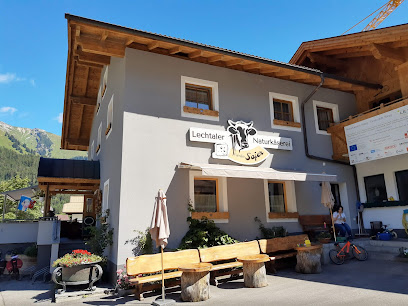
Trittkopfbahn, Talstation
Discover breathtaking views and exhilarating experiences at the Trittkopfbahn, the gateway to the Arlberg ski area in Lech, Austria.
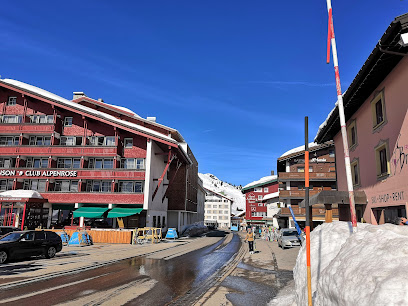
Post Lech Arlberg
Experience luxury and adventure at Post Lech Arlberg, a boutique hotel offering exceptional dining, wellness, and stunning Alpine views.

Cafe-Pension Fritz
Experience the cozy charm of Cafe-Pension Fritz in Lech, Austria – a perfect blend of café delights and comfortable accommodations in the heart of the Alps.
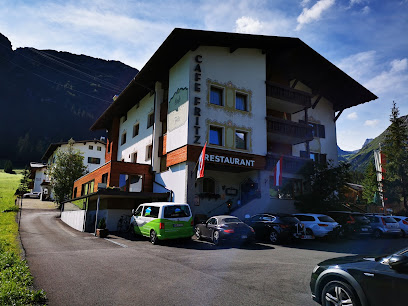
The Great Valluga
Discover The Great Valluga in St. Anton am Arlberg: Your ultimate destination for ski rentals and outdoor sporting goods in the heart of the Alps.
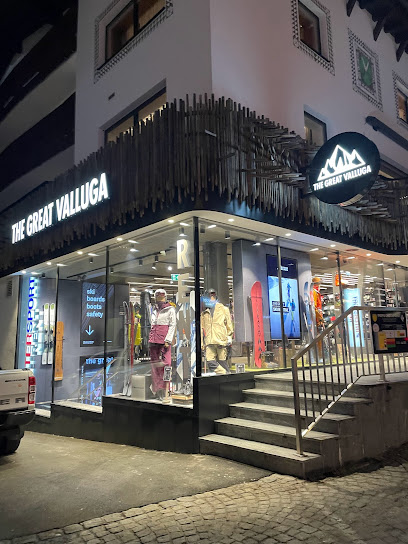
ROBINSON ALPENROSE ZÜRS
Discover the luxury and adventure of ROBINSON ALPENROSE ZÜRS in the breathtaking Austrian Alps, where relaxation meets outdoor thrills.

Strolz Sport & Modehaus Lech
Explore Strolz Sport & Modehaus Lech, your ultimate destination for premium sportswear, outdoor gear, and bicycle rentals in the heart of the Austrian Alps.
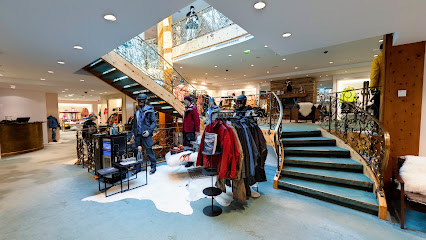
MPREIS miniM
Discover local flavors and essentials at MPREIS miniM in Pettneu am Arlberg, your go-to supermarket for an authentic Austrian experience.
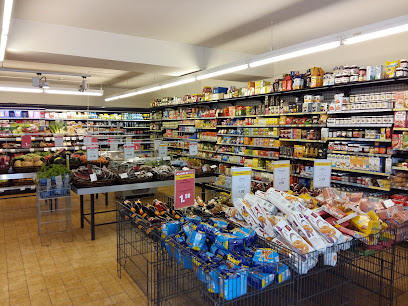
Hotel Arlberghaus
Discover the exquisite charm and luxurious comfort of Hotel Arlberghaus in the heart of the Austrian Alps, a perfect retreat for every traveler.
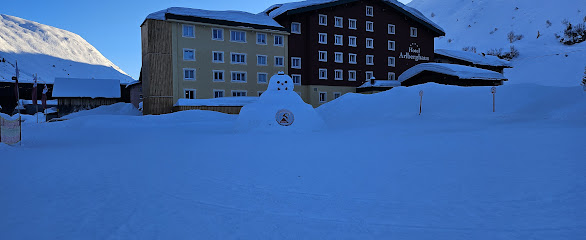
Hotel Edelweiss
Experience luxury and tranquility at Hotel Edelweiss, a premier alpine retreat in the breathtaking village of Zürs, Austria, perfect for relaxation and adventure.
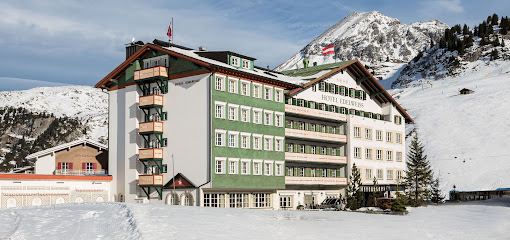
PETE Alpine Boutique Hotel
Discover alpine luxury and adventure at PETE Alpine Boutique Hotel, your gateway to unforgettable experiences in St. Anton am Arlberg.
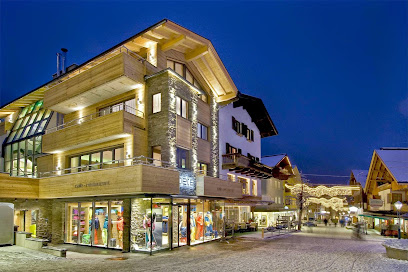
SUPA - Surfers Paradise 3.0
Explore SUPA - Surfers Paradise in St. Anton am Arlberg for top-quality snowboarding gear and expert advice in the heart of the Alps.
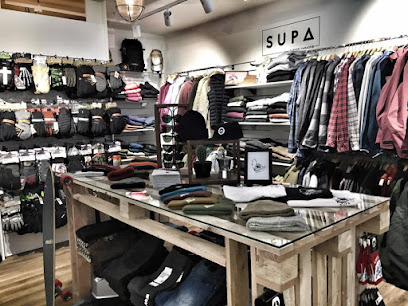
friendly Brändle Ski-Sport-Mode
Explore top-notch sportswear and ski gear at Brändle Ski-Sport-Mode in Lech, the ultimate store for winter sports enthusiasts.
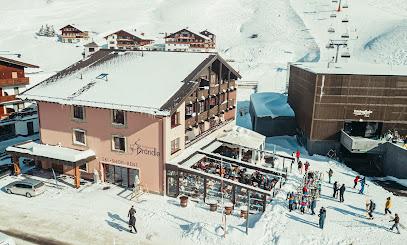
Lech Zürs Tourismus
Explore the breathtaking beauty of Lech Zürs, Austria – a premier destination for skiing, hiking, and authentic alpine culture.
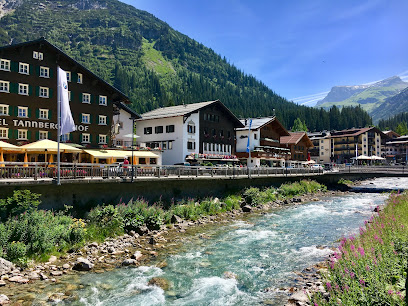
Essential bars & hidden hideouts
Das Basecamp
Discover the lively atmosphere of Das Basecamp in St. Anton am Arlberg, where great drinks and good company await after a day of adventure.
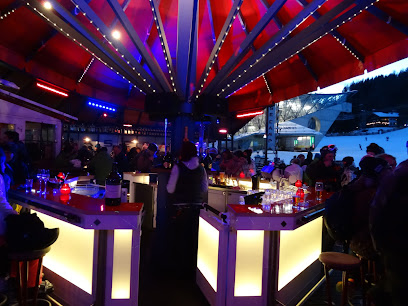
Hus Nr. 8
Discover the perfect blend of local flavor and international cuisine at Hus Nr. 8, a charming bar and restaurant in the heart of Lech.
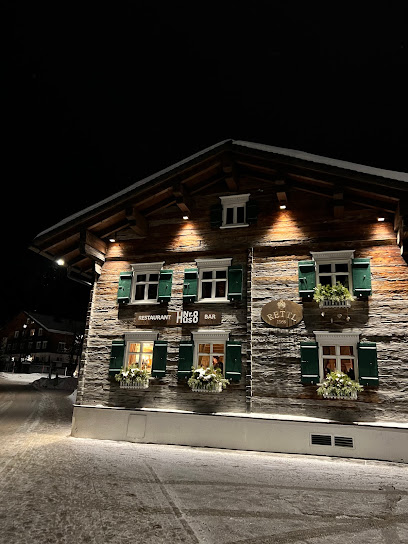
Krone-Stuben
Experience exquisite regional cuisine at Krone-Stuben, a culinary gem in the heart of Lech, Austria, perfect for an unforgettable dining experience.
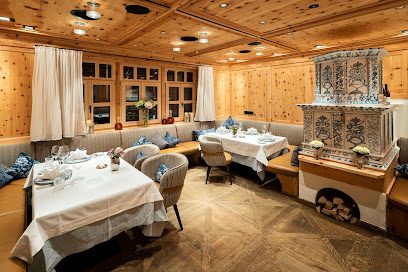
Hotel Berghof
Discover the charm of Hotel Berghof in Lech, Austria – a luxurious retreat for relaxation, adventure, and culinary delight in the stunning Alps.

Fang House
Discover Fang House in St. Anton am Arlberg: A cozy bar and café perfect for unwinding after outdoor adventures in the Alps.
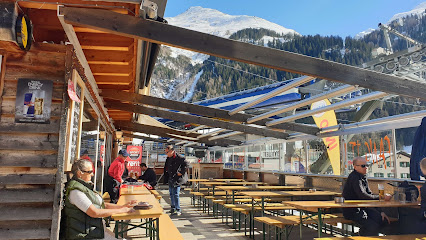
Hotel Edelweiss
Experience the perfect blend of luxury, comfort, and adventure at Hotel Edelweiss in Lech, Austria, a haven for winter sports and relaxation.
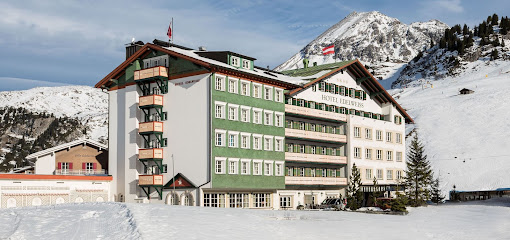
Bar Cuba
Experience the lively atmosphere and refreshing drinks at Bar Cuba in St. Anton am Arlberg, the perfect retreat after a day of adventure.
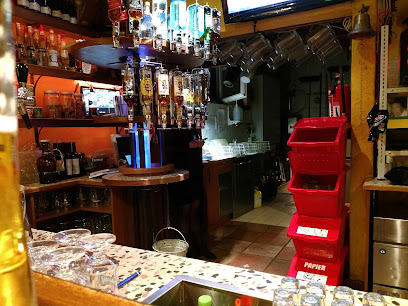
Restaurant & Hotel Hirlanda
Discover the perfect blend of alpine charm and gourmet dining at Restaurant & Hotel Hirlanda in Zürs, Austria.
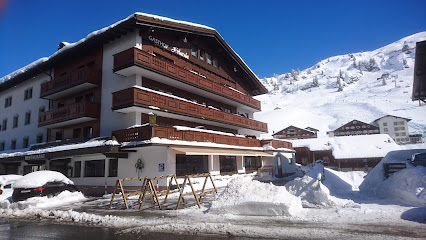
Pub Best Of
Discover the vibrant atmosphere of Pub Best Of, a beloved local pub in the Bregenzerwald, serving up drinks and camaraderie in a cozy setting.
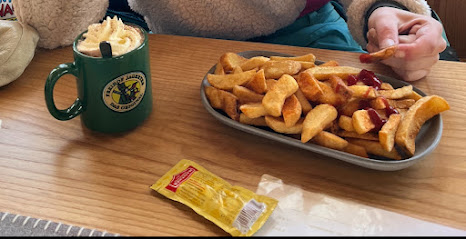
Keller Bar
Experience the cozy charm of Keller Bar in St. Anton am Arlberg, the perfect spot for après-ski drinks and socializing in the heart of the Alps.
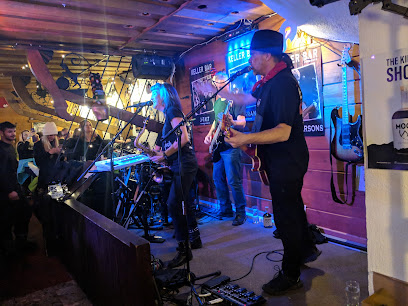
Bar Vernissage
Experience vibrant nightlife at Bar Vernissage, Lech's premier bar and dance club, offering delicious cocktails and a lively atmosphere.
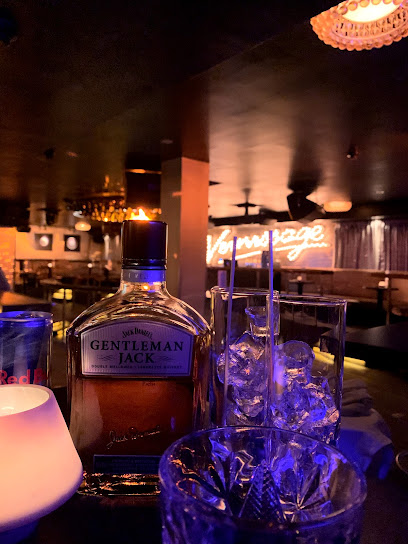
St Anton bar M3
Experience the vibrant après-ski culture at M3 Bar in St Anton am Arlberg, where great drinks and lively ambiance await you.
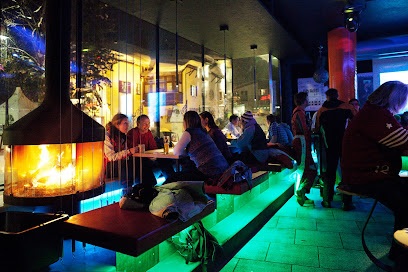
Tian
Discover the exquisite flavors of fondue, fresh fish, and steak at Tian in Zürs, a culinary haven in the heart of the Alps.
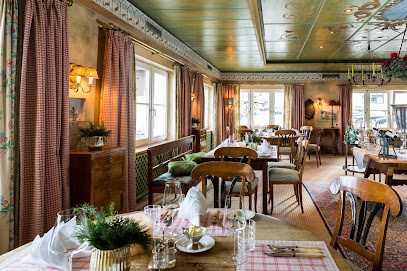
K.Club BAR GmbH
Discover the lively nightlife at K.Club BAR GmbH in Lech, where great drinks meet a pulsating disco atmosphere.
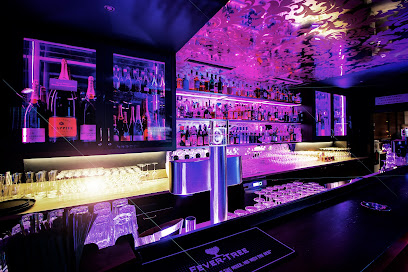
Local Phrases about Lech-Zürs am Arlberg
-
- HelloServus
[ˈsɛr.vʊs] - GoodbyeAuf Wiedersehen
[aʊ̯f ˈviː.dɐˌzeː.ən] - YesJa
[jaː] - NoNein
[naɪ̯n] - Please/You're welcomeBitte
[ˈbɪ.tə] - Thank youDanke
[ˈdaŋ.kə] - Excuse me/SorryEntschuldigung
[ɛntˈʃʊl.diˌgʊŋ] - How are you?Wie geht es Ihnen?
[viː ɡeːt ɛs ˈiːnən] - Fine. And you?Gut. Und Ihnen?
[ɡuːt ʊnt ˈiːnən] - Do you speak English?Sprechen Sie Englisch?
[ˈʃprɛ.xən ziː ˈɛŋ.lɪʃ] - I don't understandIch verstehe nicht
[ɪç fɛɐ̯ˈʃteː.ə nɪçt]
- HelloServus
-
- I'd like to see the menu, pleaseIch möchte bitte die Speisekarte sehen
[ɪc ˈmœçtə ˈbɪtə diː ˈʃpaɪ̯zəˌkartə ˈzeːən] - I don't eat meatIch esse kein Fleisch
[ɪc ˈɛsə kaɪ̯n flaɪ̯ʃ] - Cheers!Prost!
[pʁɔst] - I would like to pay, pleaseIch möchte bitte zahlen
[ɪc ˈmœçtə ˈbɪtə ˈtsaːlən]
- I'd like to see the menu, pleaseIch möchte bitte die Speisekarte sehen
-
- Help!Hilfe!
[ˈhɪlfə] - Go away!Gehen Sie weg!
[ˈɡeːən ziː vɛk] - Call the Police!Rufen Sie die Polizei!
[ˈʁuːfən ziː diː pɔˈliːtsaɪ̯] - Call a doctor!Rufen Sie einen Arzt!
[ˈʁuːfən ziː ˈaɪ̯nən ʔaʁts] - I'm lostIch bin verloren
[ɪc bɪn fɛɐ̯ˈloːʁən] - I'm illIch bin krank
[ɪc bɪn kraŋk]
- Help!Hilfe!
-
- I'd like to buy...Ich möchte kaufen...
[ɪc ˈmœçtə ˈkaʊ̯fən] - I'm just lookingIch schaue nur
[ɪc ˈʃaʊ̯ə nʊr] - How much is it?Wie viel kostet es?
[viː fiːl ˈkɔstət ɛs] - That's too expensiveDas ist zu teuer
[das ɪst tsu ˈtɔʏ̯ɐ] - Can you lower the price?Können Sie den Preis senken?
[ˈkœnən ziː dɛn pʁaɪ̯s ˈzɛŋkən]
- I'd like to buy...Ich möchte kaufen...
-
- What time is it?Wie spät ist es?
[viː ʃpɛt ɪst ɛs] - It's one o'clockEs ist ein Uhr
[ɛs ɪst aɪ̯n ʔuːɐ] - Half past (10)Halb (zehn) Uhr
[halb (tseːn) ʔuːɐ] - MorningMorgen
[ˈmɔʁɡən] - AfternoonNachmittag
[ˈnaχˌmɪˌtaːk] - EveningAbend
[ˈaːbənt] - YesterdayGestern
[ˈɡɛstɐn] - TodayHeute
[ˈhɔɪ̯tə] - TomorrowMorgen
[ˈmɔʁɡən] - 1Eins
[aɪ̯ns] - 2Zwei
[tsvaɪ̯] - 3Drei
[dʁaɪ̯] - 4Vier
[fiːɐ] - 5Fünf
[fʏnf] - 6Sechs
[zɛks] - 7Sieben
[ˈziːbən] - 8Acht
[axt] - 9Neun
[nɔɪ̯n] - 10Zehn
[tseːn]
- What time is it?Wie spät ist es?
-
- Where's a/the...?Wo ist ein/der...?
[vo ɪst aɪ̯n/deːr] - What's the address?Was ist die Adresse?
[vas ɪst diː ˈaːdʁɛsə] - Can you show me (on the map)?Können Sie mir (auf der Karte) zeigen?
[ˈkœnən ziː mɪʁ (aʊ̯f deːɐ ˈkaʁtə) ˈʦaɪ̯ɡən] - When's the next (bus)?Wann kommt der nächste (Bus)?
[van kɔmt deːɐ ˈnɛkstə (bʊs)] - A ticket (to ....)Eine Fahrkarte (nach ....)
[ˈaɪ̯nə ˈfaːɐ̯kaʁtə (naχ)]
- Where's a/the...?Wo ist ein/der...?
History of Lech-Zürs am Arlberg
-
Lech-Zürs am Arlberg traces its origins back to the 14th century when it was first settled by the Walser people, a group of Germanic-speaking migrants from the Canton of Valais in Switzerland. The settlers named the area 'Tannberg' after the dense forests that covered the region. The early community was largely agrarian, subsisting on farming and cattle breeding. Their unique dialect and customs have left a lasting cultural imprint on the region.
-
The Church of St. Nicholas, located in the heart of Lech, is one of the oldest landmarks in the area. Built in the late 14th century, this Gothic-style church has been a spiritual and cultural center for the local community for centuries. The interior is adorned with beautiful frescoes and a Baroque altar, reflecting the artistic heritage of the medieval period.
-
In the late 19th and early 20th centuries, Lech-Zürs am Arlberg began to gain recognition as a prime destination for alpine tourism. The first tourists were largely from the aristocratic and affluent classes of Europe, drawn by the pristine natural beauty and the promise of adventure. The construction of the Arlberg Railway in 1884 made the region more accessible, further boosting its popularity among travelers.
-
The Arlberg Ski Club, founded in 1901 in St. Anton, played a crucial role in popularizing skiing in Lech-Zürs am Arlberg. The club's members were pioneers in alpine skiing techniques and helped establish the region as one of the premier skiing destinations in the world. The club's influence is still felt today, with many local ski schools tracing their origins back to its founding members.
-
The mid-20th century saw significant development in Lech-Zürs am Arlberg as a modern ski resort. The introduction of the first cable cars and ski lifts in the 1940s and 1950s revolutionized the skiing experience, making the slopes more accessible to a broader range of visitors. The region continued to innovate with the construction of luxury hotels and state-of-the-art skiing facilities, cementing its reputation as a world-class destination.
-
The White Ring (Der Weiße Ring) is one of the most iconic ski circuits in the world, inaugurated in 2006. This unique ski route connects Lech, Zürs, Zug, and Oberlech, offering skiers a challenging and scenic experience. The annual White Ring race attracts professional and amateur skiers from around the globe, showcasing the area's long-standing tradition of competitive skiing.
-
Lech-Zürs am Arlberg is not just about skiing; it is also a hub of cultural activity. The region hosts several annual festivals, such as the Lech Zürs Jazz Stage and the Philosophicum Lech, which attract artists, thinkers, and musicians from around the world. Traditional events, like the 'Almabtrieb' (the ceremonial driving down of cattle from the mountain pastures), highlight the area's rich agricultural heritage and offer visitors a glimpse into local customs.
Lech-Zürs am Arlberg Essentials
-
Lech-Zürs am Arlberg is located in the Austrian Alps and is accessible via several modes of transportation. The nearest airport is Innsbruck Airport, approximately 120 kilometers away. From the airport, you can rent a car, take a shuttle, or use public transport to reach Lech-Zürs. Zurich Airport in Switzerland is another option, around 200 kilometers away. The region is also accessible by train; the closest train station is Langen am Arlberg, from where you can take a bus or taxi to Lech-Zürs.
-
Once in Lech-Zürs, getting around is straightforward. The villages are compact and walkable. Ski buses operate frequently to connect various parts of the resort, and they are free for those with a valid ski pass. Taxis are available but can be expensive. For a more flexible option, consider renting a car, especially if you plan to explore neighboring areas.
-
The official currency in Austria is the Euro (EUR). Credit and debit cards are widely accepted in most hotels, restaurants, and shops. However, it is advisable to carry some cash for smaller establishments and tips. ATMs are readily available in Lech-Zürs, so you can easily withdraw money if needed.
-
Lech-Zürs am Arlberg is generally a very safe destination with a low crime rate. Standard precautions should be taken, such as not leaving valuables unattended and being cautious in crowded areas. There are no specific high-crime neighborhoods targeting tourists. The local police are helpful and responsive should you need any assistance.
-
In case of an emergency, dial 112 for immediate assistance. Medical facilities are available in the area, including a local doctor's office and pharmacy. For more serious medical issues, the nearest hospital is in Bludenz, about 30 kilometers away. It is advisable to have travel insurance that covers medical emergencies and skiing accidents.
-
Fashion: Do dress warmly and in layers, as weather can change quickly. Avoid overly casual clothing in upscale restaurants. Religion: Do respect local customs if visiting churches; wear modest clothing and be quiet. Public Transport: Do be on time for buses, as they run on a strict schedule. Don’t eat or drink on public transport. Greetings: Do greet people with a friendly 'Grüß Gott' (Hello). A handshake is common when being introduced. Eating & Drinking: Do try local specialties like Wiener Schnitzel and Apfelstrudel. Don’t forget to tip, typically around 10%.
-
To experience Lech-Zürs like a local, visit during the off-peak seasons of late spring or early autumn for a quieter experience. Take advantage of the numerous hiking trails in the summer, and don’t miss the Lechweg trail for stunning views. Engage with locals in the small cafes and bars to hear fascinating stories about the area’s history and culture. Also, try to attend local events and festivals, such as the Lech Classic Festival for classical music lovers.
Trending Landmarks in Lech-Zürs am Arlberg
-
Rüfikopf Seilbahn Talstation
-
Trittkopfbahn, Talstation
-
Ski Arlberg (St. Anton, St. Christoph, Stuben, Lech, Zürs, Warth, Schröcken)
-
Bergbahn Lech–Oberlech
-
Lech Bergbahnen AG
-
Seekopf Sesselbahn, Talstation
-
Skyspace Lech
-
Hotel Arlberghaus
-
Hotel Albona Nova
-
Stockibach Wasserfall
-
Restaurant & Hotel Hirlanda
-
Zürsersee Sesselbahn, Talstation
-
Zürser See
-
Alpe Rauz
-
Lech Zürs Tourismus
Nearby Cities to Lech-Zürs am Arlberg
-
Things To Do in Dornbirn
-
Things To Do in Schellenberg
-
Things To Do in Triesenberg
-
Things To Do in Mauren
-
Things To Do in Ruggell
-
Things To Do in Davos
-
Things To Do in Eschen
-
Things To Do in Bregenz
-
Things To Do in Vaduz
-
Things To Do in Schaan
-
Things To Do in Gamprin
-
Things To Do in Balzers
-
Things To Do in Arosa
-
Things To Do in St. Moritz
-
Things To Do in Innsbruck













